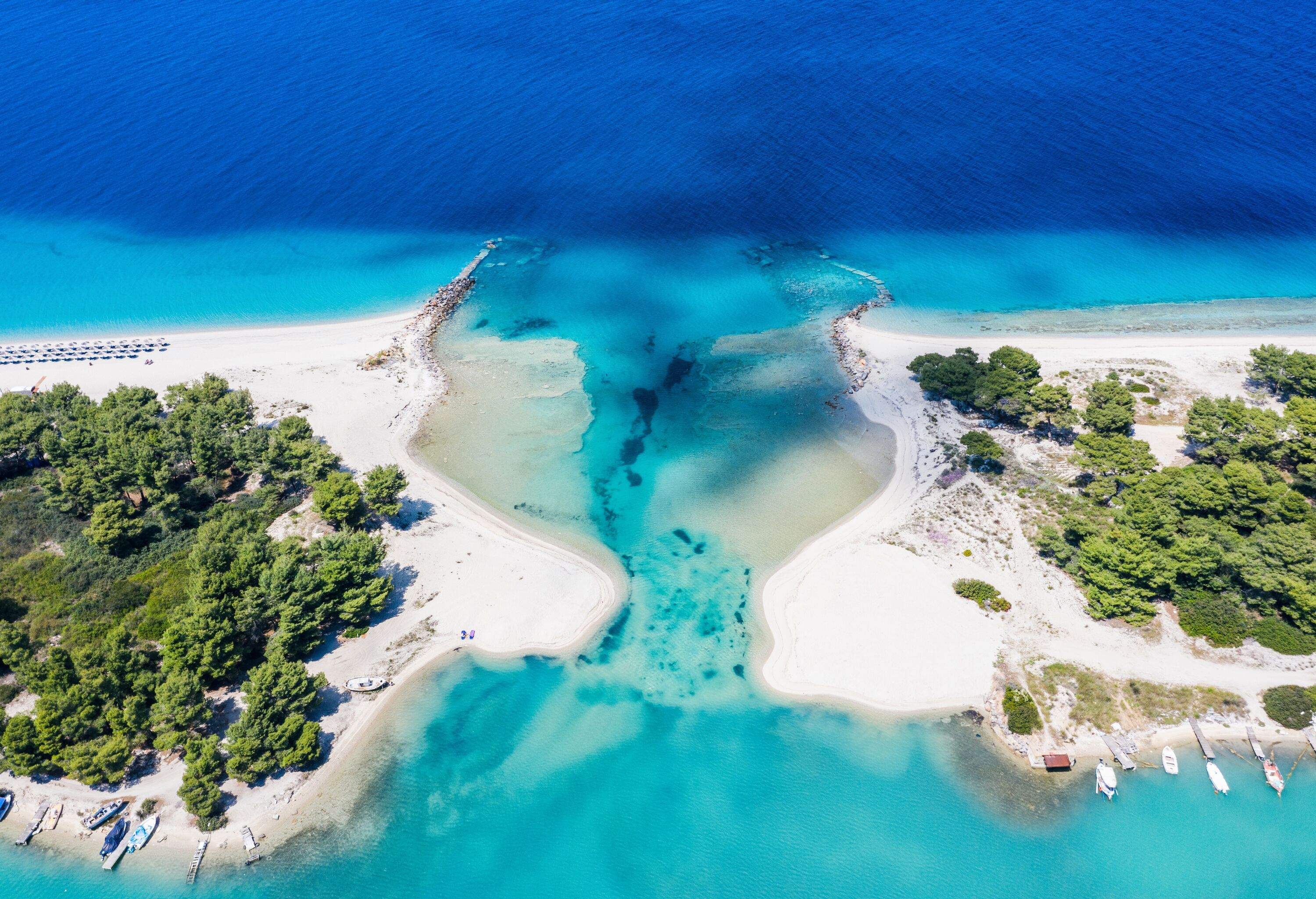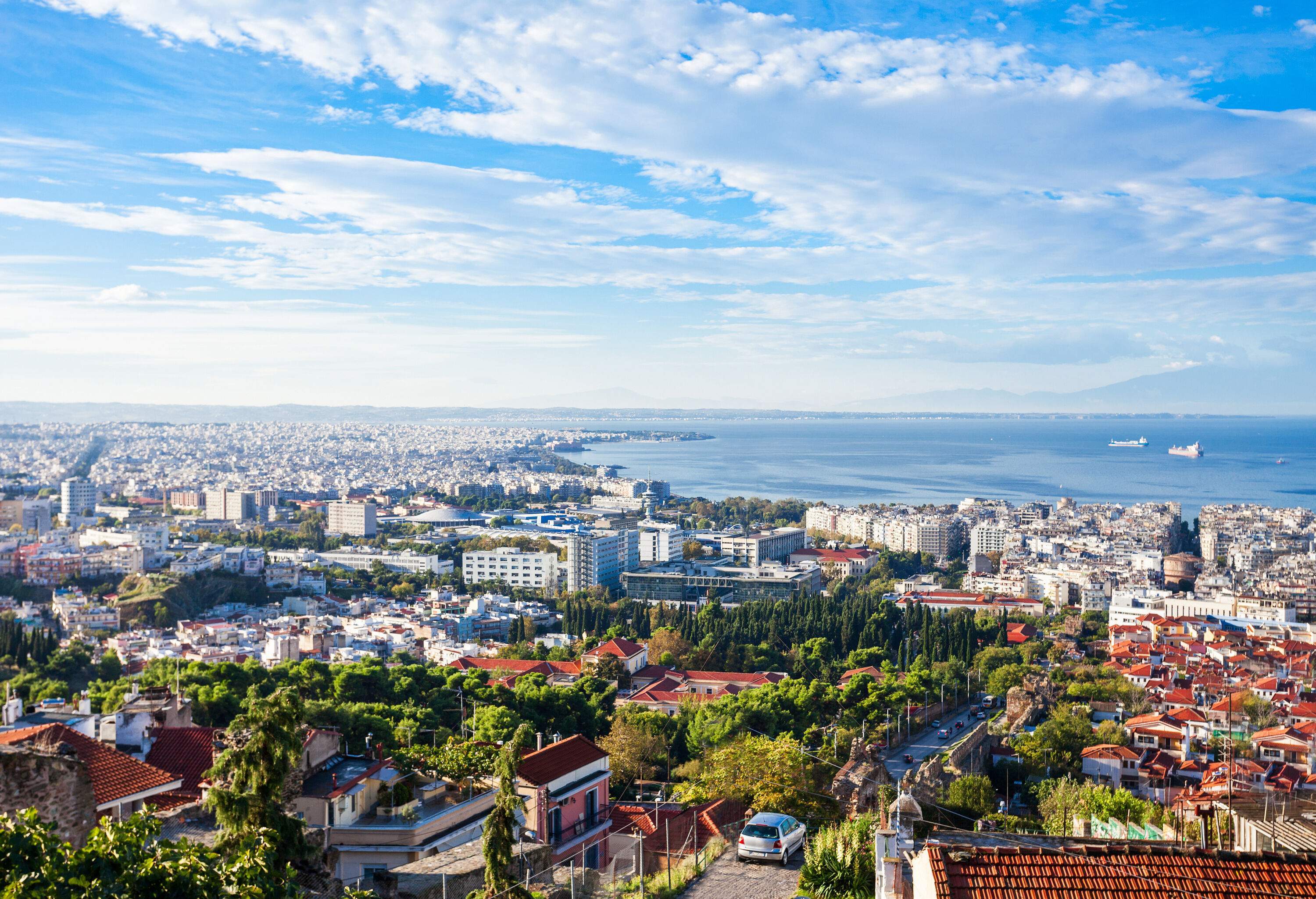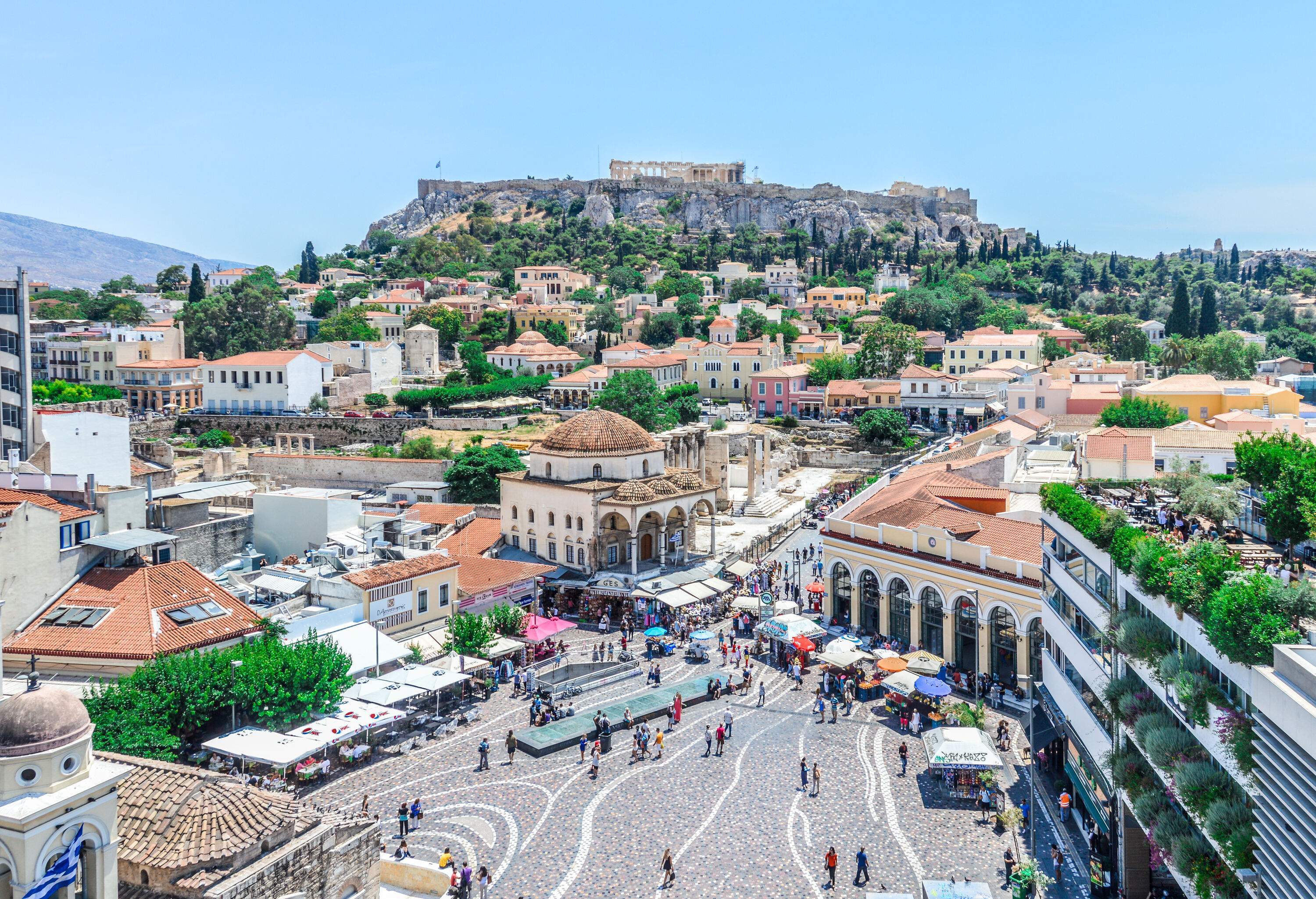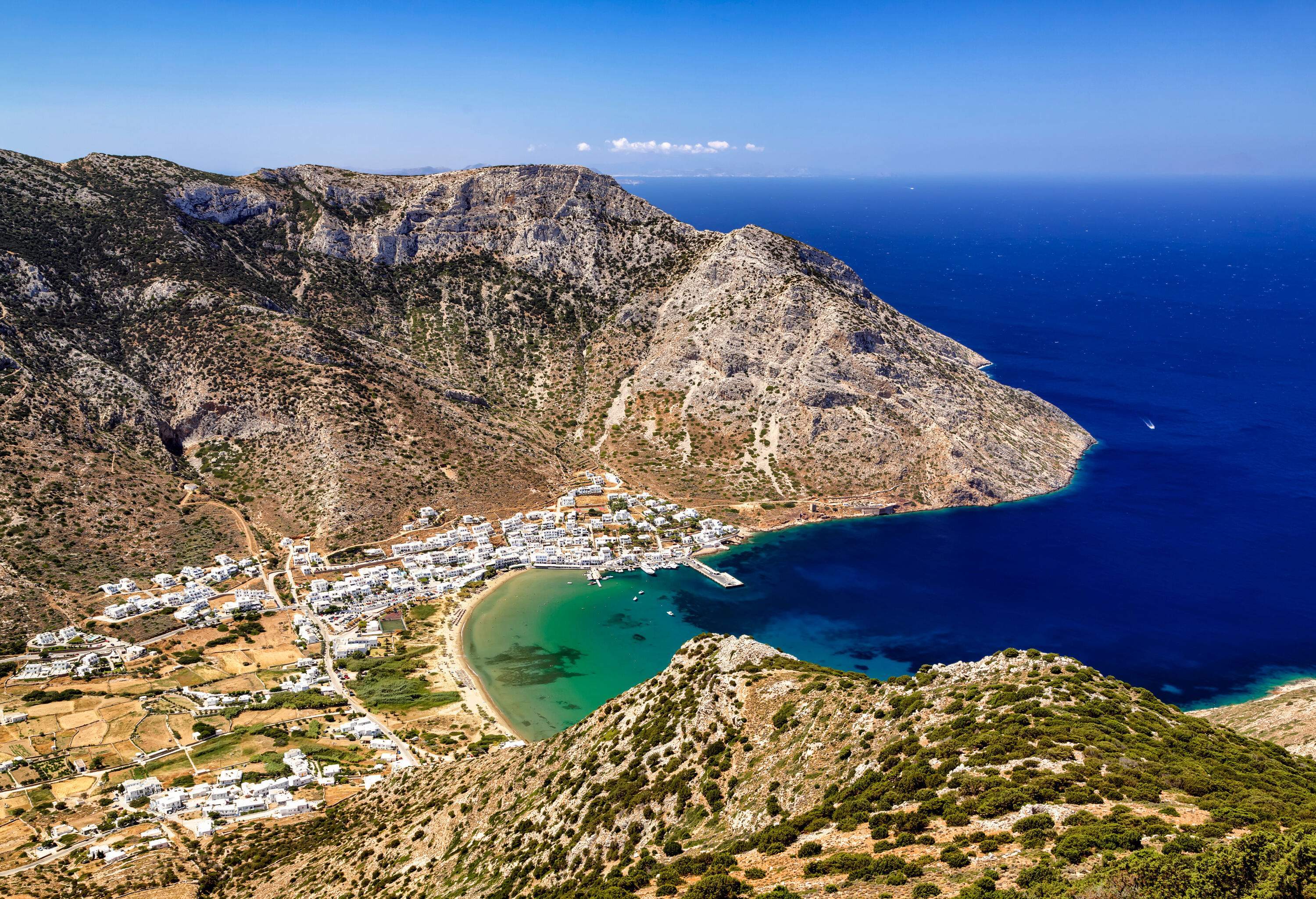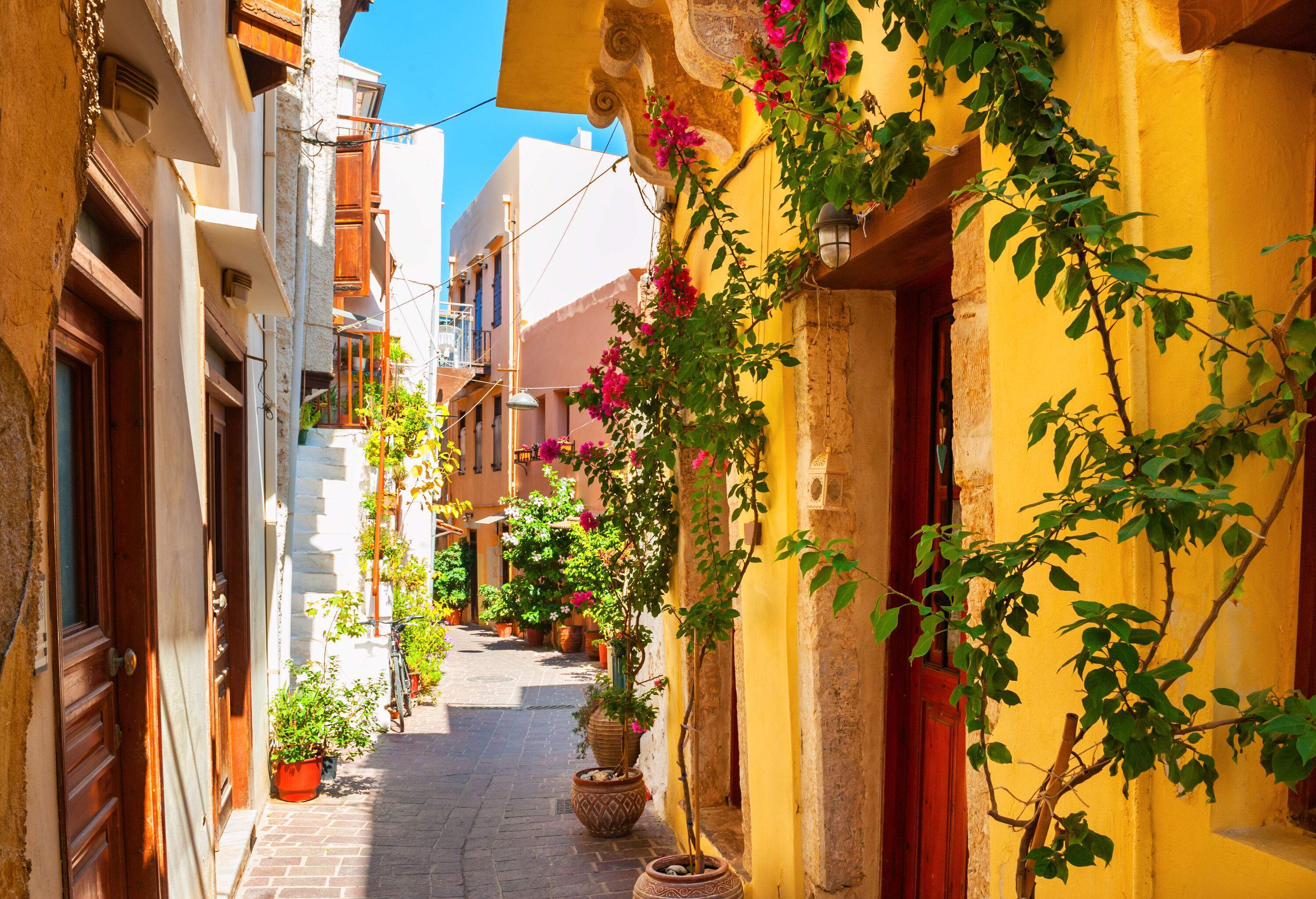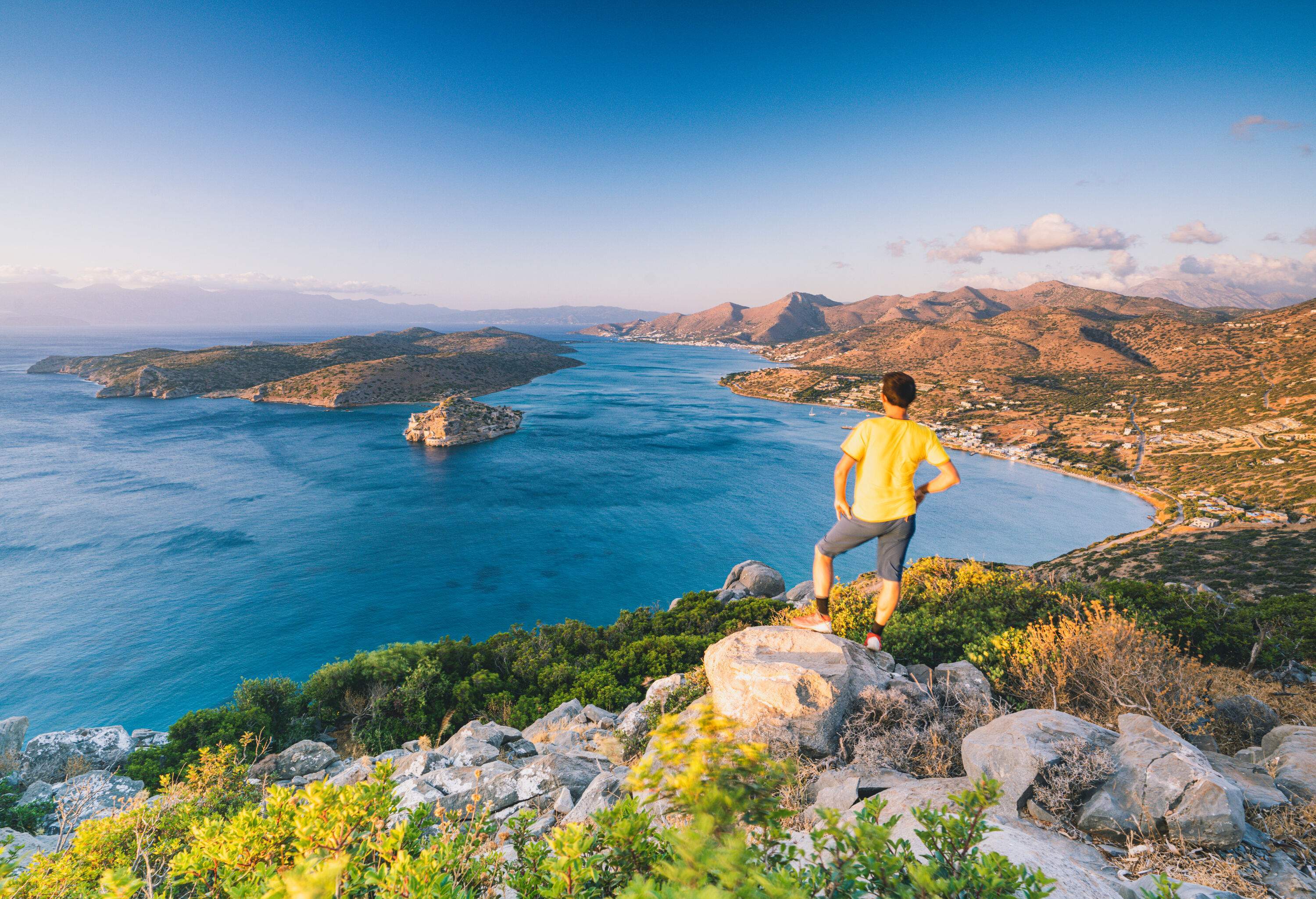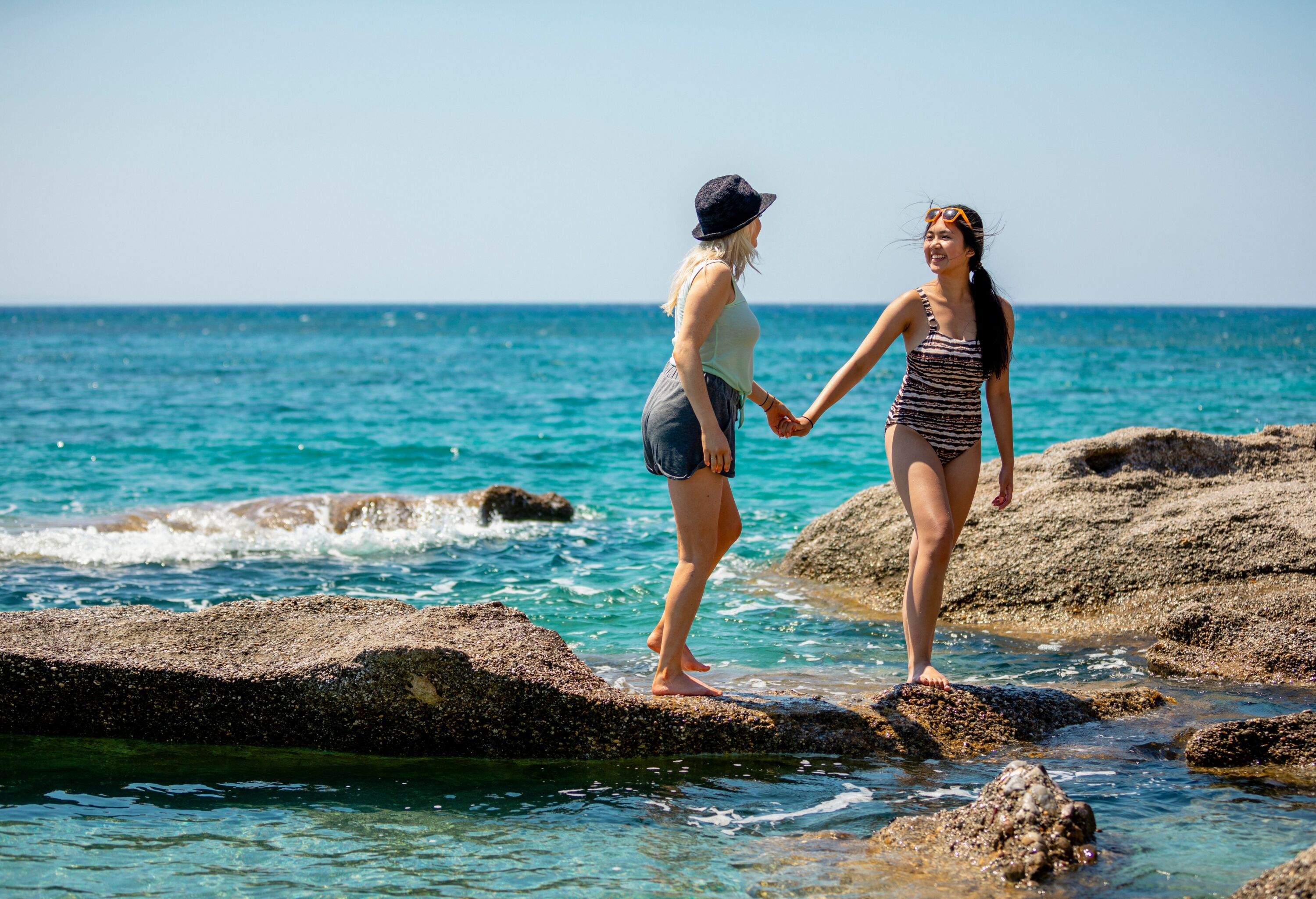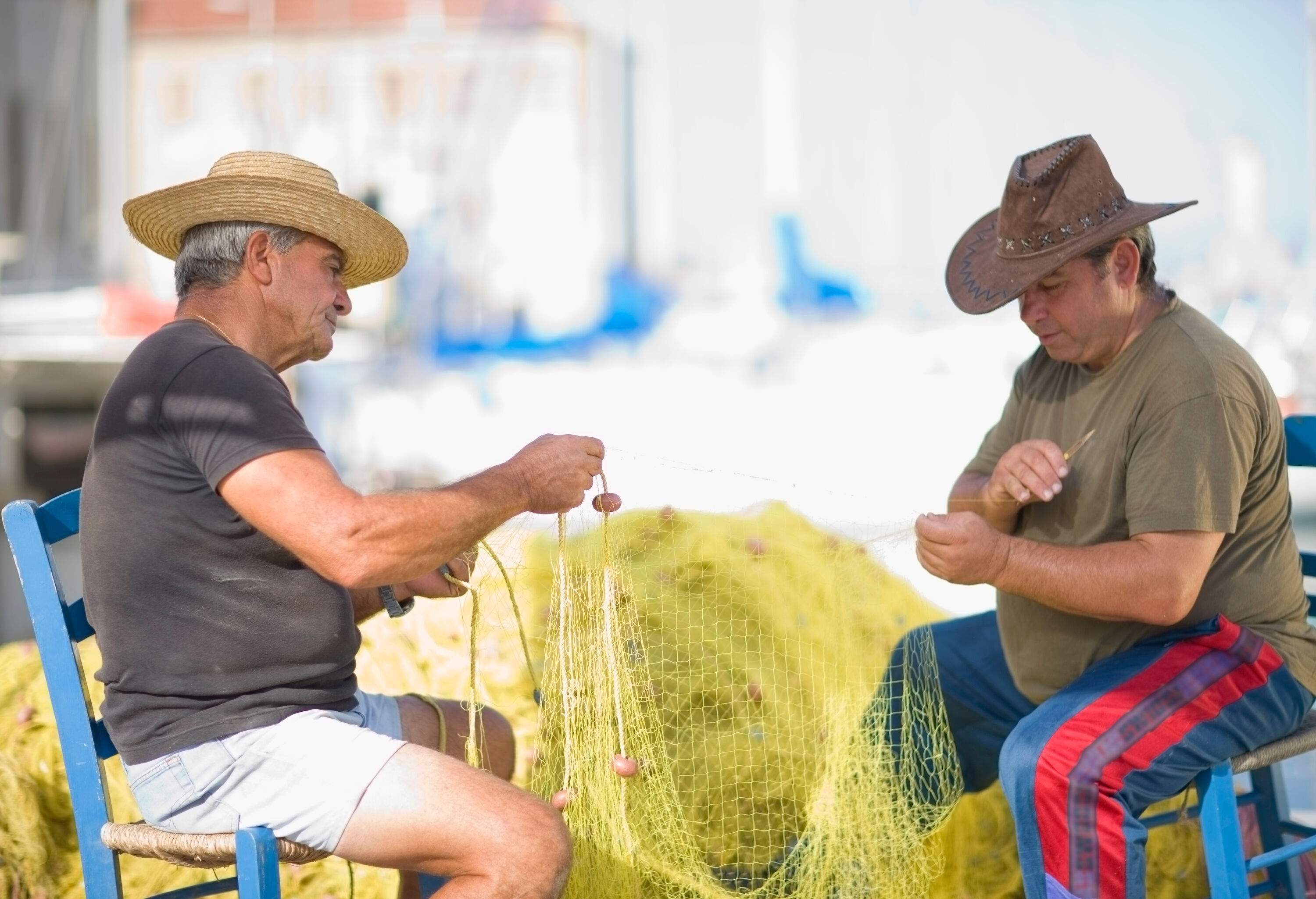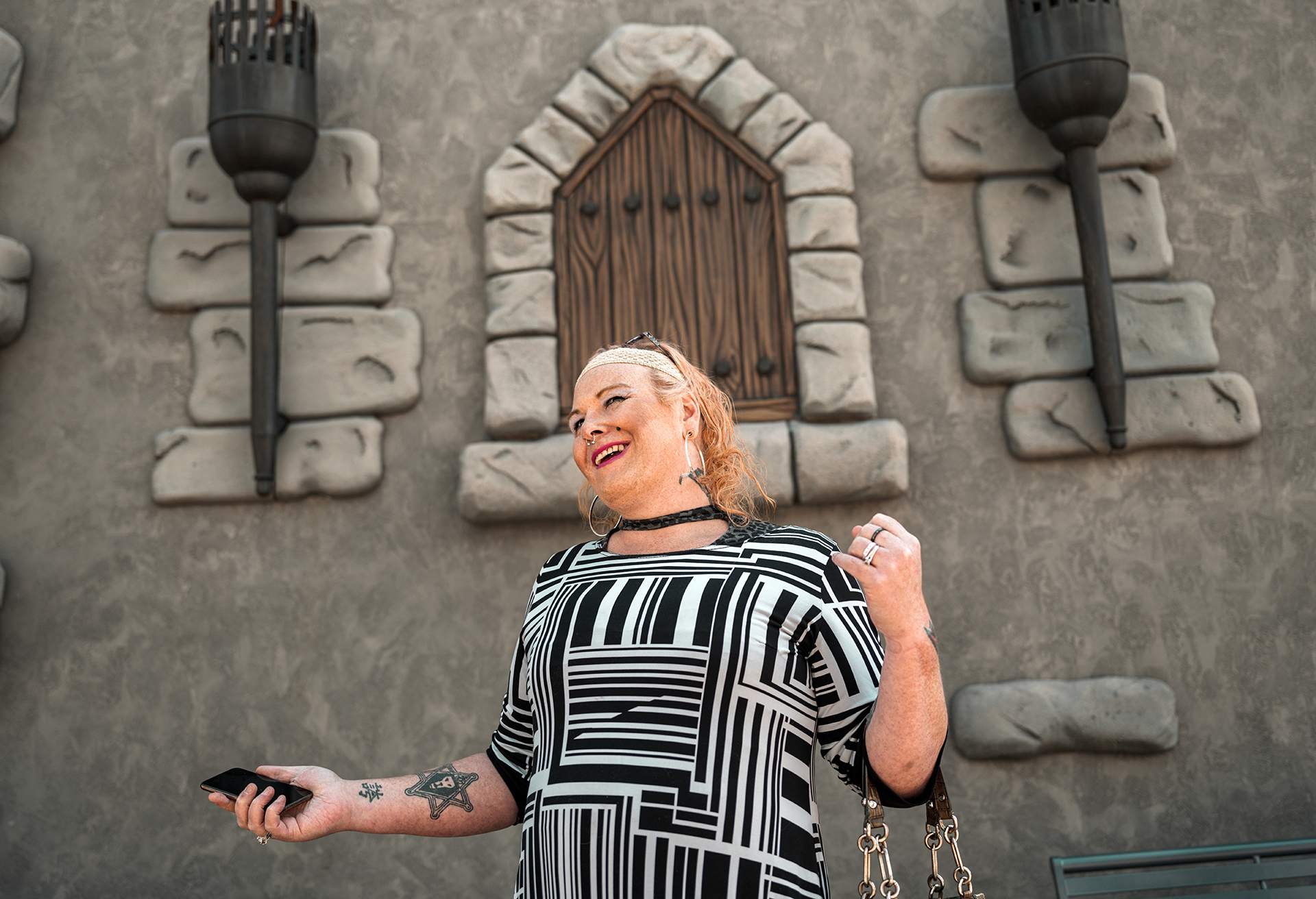LGBTQ+ travel is all about inclusivity, which is great because when you visit Greece, you truly get it all. Bustling city streets, islands full of queer nightlife, and quaint beachfront romance can all be part of your gay Greek travel experience.
Stunning landscapes and legendary hospitality prove that the inviting local culture is as warm as the sun-drenched beaches. From ancient history to vibrant modernity, you don’t need an archaeologist to discover the best places to visit in Greece.
Is Greece LGBT-friendly?
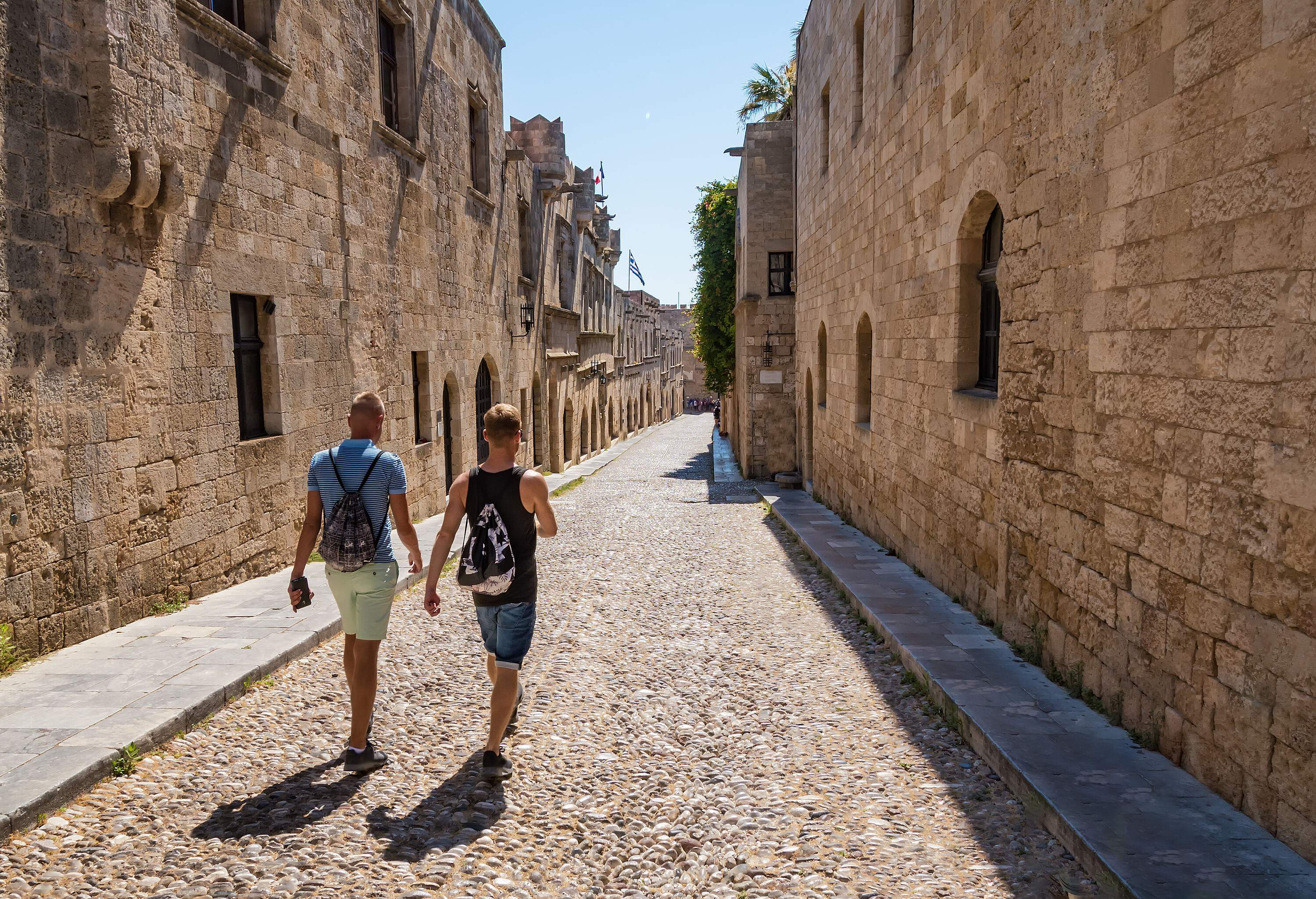
Greece offers a rich cultural tapestry that’s as diverse as its landscape. While this guide will focus on gay-friendly Greek destinations, there are places where LGBTQ+ travellers may not be as welcomed. It’s essential to familiarise yourself with local laws and customs.
Typically, small islands and rural locations in Greece are more conservative than touristic islands and large cities. While this is true in even the most progressive countries, it’s important to note that the Greek Orthodox Church has a significant influence on society. The church has also made its opinions on gender identity and sexual orientation well known with a clear opposition to LGBTQ+ rights.
Despite opposition from the church and some politicians, Greece recently became the first Orthodox nation to recognise same-sex marriage. The same legislation grants parental and adoption rights to same-sex couples.
While anti-discrimination laws in Greece protect LGBTQ+ locals and travellers, incidents of violence against the community continue to occur. Within a month of the celebrated bill confirming LGBTQ+ marriage and parental rights, an attack on two transgender people in Thessaloniki overshadowed the historic legislation. The advancement of gay rights in Greece doesn’t mean safety and acceptance are universally guaranteed across the country, especially for transgender travellers.
Exercise caution and discretion in smaller towns and conservative areas that are less touristy. While the public is generally open-minded, public displays of affection can draw unwanted and negative attention in many areas of Greece.
While it’s rare you will need them, here are some emergency numbers to keep handy while visiting Greece.
- Emergency: 112
- Ambulance: 166
- Tourist Police: 171
The best places to visit in Greece for gay travellers
I'm thrilled to recommend my favourite Greek destinations. From the well-known to the local hidden gems, I have curated this list of the best places to visit in Greece with the LGBTQ+ traveller in mind. Of course, our community is as diverse and unique as the destinations themselves, and I’m certain there is something for all of us.
Thessaloniki
Greece’s second-largest city, Thessaloniki, is easily one of the best places to visit in Greece for any gay traveller. It quickly developed a reputation as one of Greece’s up-and-coming gay destinations and is especially popular with the lesbian community. Visitors of all backgrounds make their way to Thessaloniki for the laid-back atmosphere and coastal vibes that will put you instantly at ease.
The city is known as a cultural centre of Greece, is capital of the Macedonia region, and boasts a large student population. As you may imagine, this type of city boasts a popular nightlife, but there are stunning beaches in Thessaloniki and incredible sites from Roman, Byzantine, and mediaeval history.
Thessaloniki Pride is the highlight of the LGBTQ+ calendar in Thessaloniki. In 2024 the event is expected to break attendance records as Thessaloniki will be the official Euro Pride host city. The city won a bid to host the event in 2020, but it was sadly cancelled that year.
With pent up anticipation, Thessaloniki is ready to launch Euro Pride on Friday 21 June with a long-awaited opening ceremony concert and full, ten-day calendar of festivities. The main event of Euro Pride will be the parade, fair, and closing concert on Saturday 29 June.
Athens
The Greek capital needs no introduction. Athens is steeped in history, art, culture, cuisine, and it’s as iconic as its namesake, Athena, herself. While it’s an obvious pick for a list of the best places to visit in Greece for gay travellers, it’s far from a basic one.
History lovers should climb the Acropolis and stand in awe of the Parthenon and ancient Greek monuments. The cobblestoned neighbourhood below, Plaka, sits in the shadow of the Acropolis and feels like a small village with adorable cafes and cute shops. Do some souvenir shopping, stop for a meal, or visit one of the tavernas in this adorable part of the city.
If you’re looking for gay nightlife in Athens, head to Gazi, the neighbourhood known for bars, cafes, and nightclubs that cater to the LGBTQ+ community. Athens is a natural starting point and a destination in Greece where the acceptance and progress of modern Greece resonates the strongest.
Since 2005, Athens has hosted a lively Pride Celebration in Klafthmonos Square. Athens Pride 2024 is slated for 14-16 June, one week before Euro Pride in Thessaloniki begins. Everyone loves a combo deal, and this makes 2024 perfect for visiting Greece’s capital and second-city for back-to-back weeks of Pride.
Mykonos
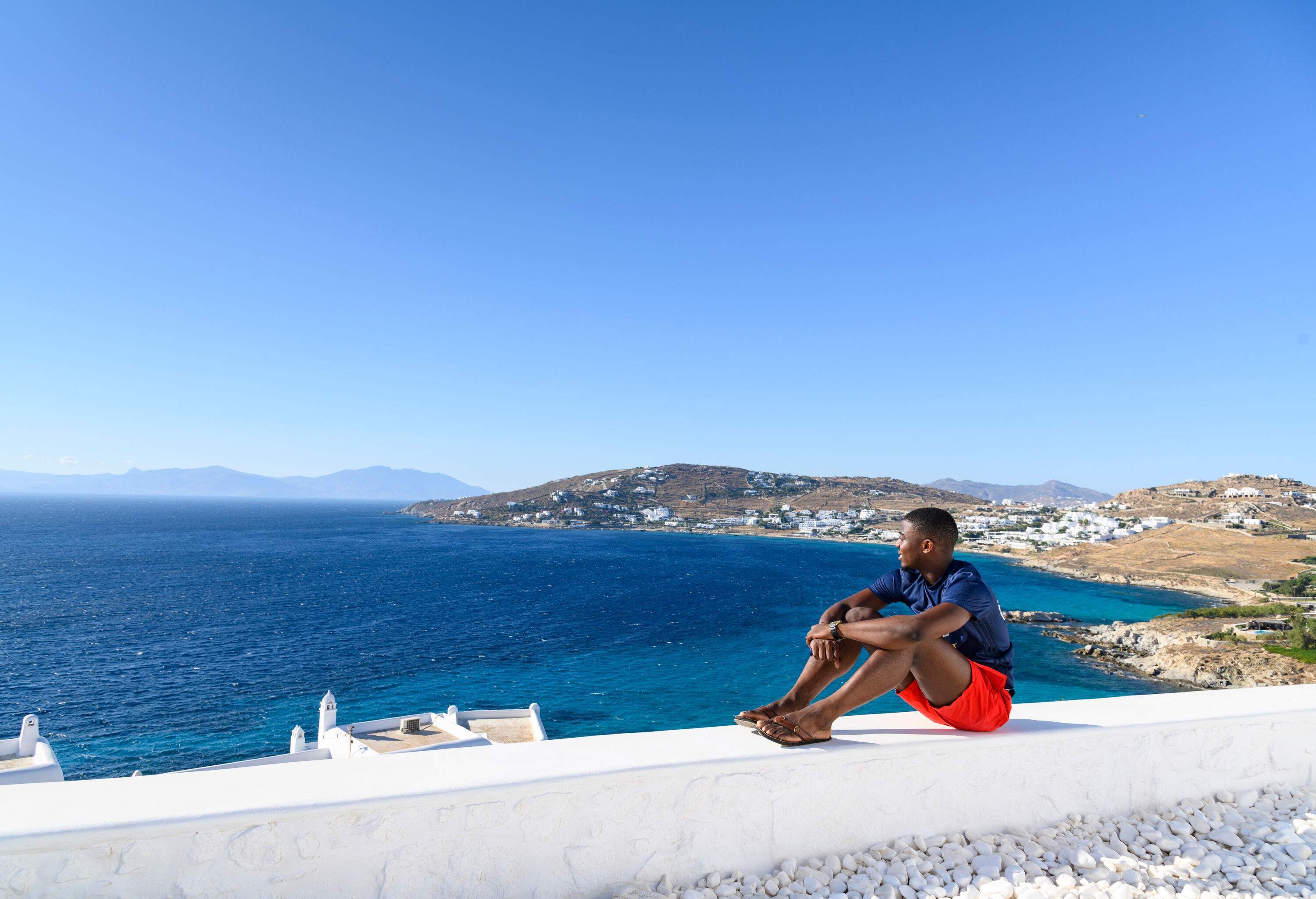
Long considered a playground for the gay community, Mykonos is the most popular Greek island for the LGBTQ+ traveller. The vibrant nightlife, open-minded locals, and picturesque landscape are the reasons why.
Chora, or Mykonos Town, the island’s capital and hub of attractions, is the place to stay if you want to be in the centre of the scene. It’s everything you imagine a Greek island city to be - a maze of streets lined by whitewashed cubic houses with bright blue wooden doors.
No trip to Mykonos is complete without a trip to Elia Beach. You’ll see why it’s named among the best gay beaches in Mykonos, Greece if not all of Europe. If you’re looking for a party you can find a plethora of beach bars including at LGBTQ+ venues. The gay nightlife in Mykonos is just as enticing, or you can sit in the shadow of the iconic Mykonos Windmills along Little Venice as the waves of the bay crash onto the walkway.
Finding gay and gay-friendly accommodation is not a problem in Mykonos, but expect to pay a premium on the island. This is especially true during late August when the party scene is flooded with LGBTQ+ tourists, especially gay men visiting the XLSIOR Festival. This international gay party attracts over 30,000 visitors and is taking place 22-28 August 2024.
Santorini
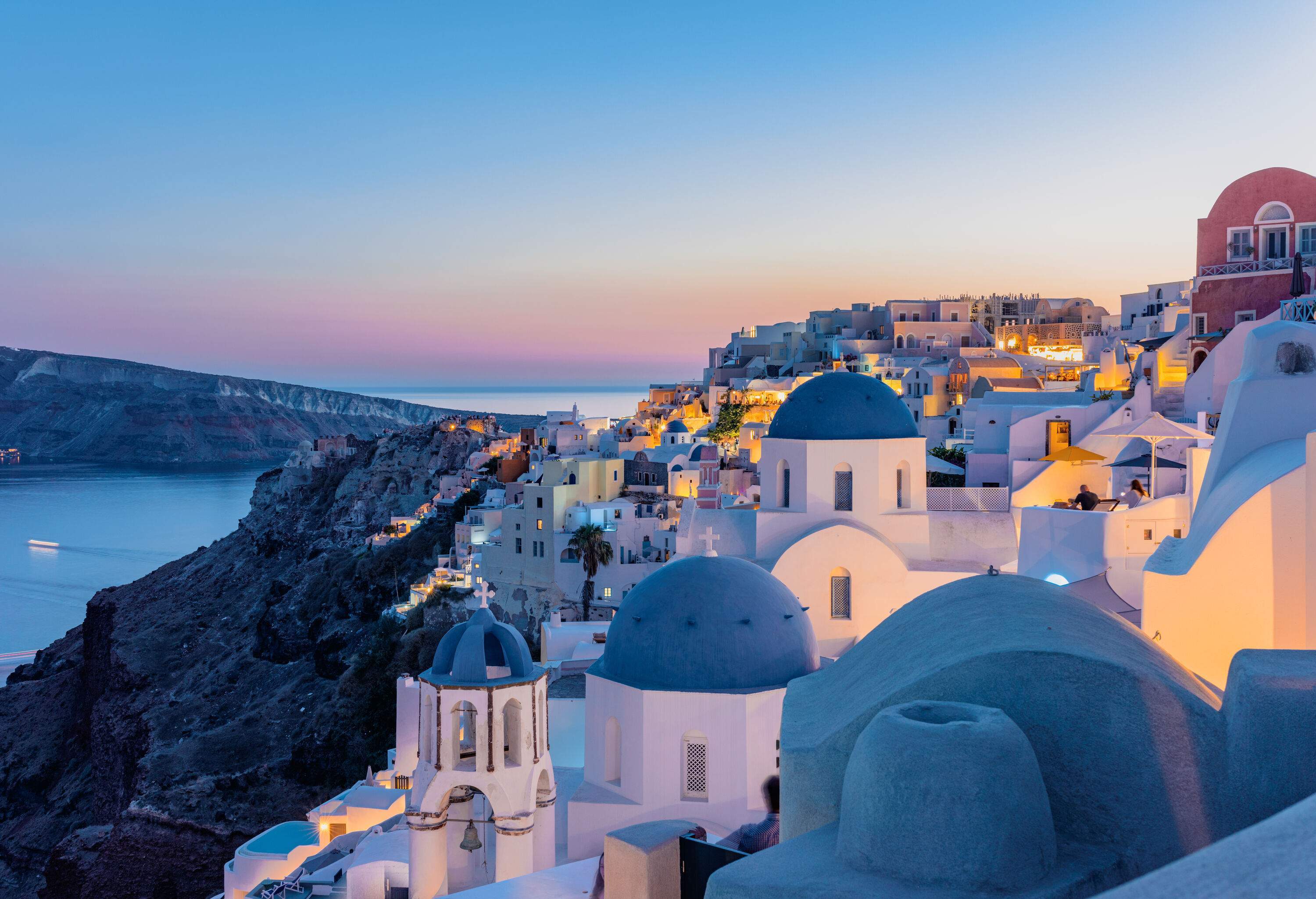
It may not have the gay nightlife of Mykonos, but Santorini is a vibrant island paradise that should be atop your travel list. Santorini is a naturally formed volcanic island with breathtaking topography jutting up from the Aegean Sea. Popular with couples, the island is world-renowned for its sunsets and the best can be viewed from the northern city of Fira.
Santorini is home to ancient ruins, wineries, and colourful beaches. From the volcanic eruption that formed the island, different layers were exposed and gave way to the famous Black Beach, Red Beach, and White Beach. It won’t take long for you to see why Santorini is one of the best places to visit in Greece.
Sifnos
The stunning island of Sifnos is getting increasingly popular with travellers but until recently it maintained hidden gem status, known only to Greek locals. In fact, I never would have known about Sifnos until I tagged along on that family holiday with my Greek friend.
Despite its increased profile, Sifnos is one of the best places to visit in Greece for mellow island vibes and a relaxed atmosphere. Sifnos is an ideal escape for couples, rainbow families, and travellers seeking an affordable Greek island getaway.
On Sifnos, you’ll find remote beaches, cosy fishing villages, and well-maintained hiking trails. It’s also a great island to sample Greek cuisine. There are traditional tavernas and restaurants all over Sifnos and ample nightlife, especially in Apollonia, the island’s largest city. Don’t forget to visit local shops for souvenirs from Sifnos, because the island is famous for its pottery.
Crete
Even if it isn’t as well known to the gay community, Crete is one of the best places to visit in Greece. It’s full of exquisite dining, shopping, and history, so it truly has something for everyone.
LGBTQ+ travellers can feel safe in Crete, but exercise caution outside of the main cities. Still, Crete is full of resorts, beaches, and bars that welcome queer visitors. The main cities of Heraklion and Chania are especially LGBTQ-friendly destinations.
For couples, consider the city of Elounda, it’s one of the most romantic places in Crete.
How do I plan a gay holiday in Greece?
Before you sashay away to your Greek holiday, you may feel overwhelmed. LGBTQ+ Greece has been millennia in the making, and you’ve only been planning this trip for a minuscule portion of that time. Fear not - trip planning can often seem intimidating, but with some help, it can be an Aegean Breeze.
To ease your mind let’s cycle through some planning tips and address the most frequently asked questions about travel to Greece. Soon you’ll have everything sorted and a packed itinerary with the best places to visit in Greece ready to be discovered.
When is the best time to visit Greece?
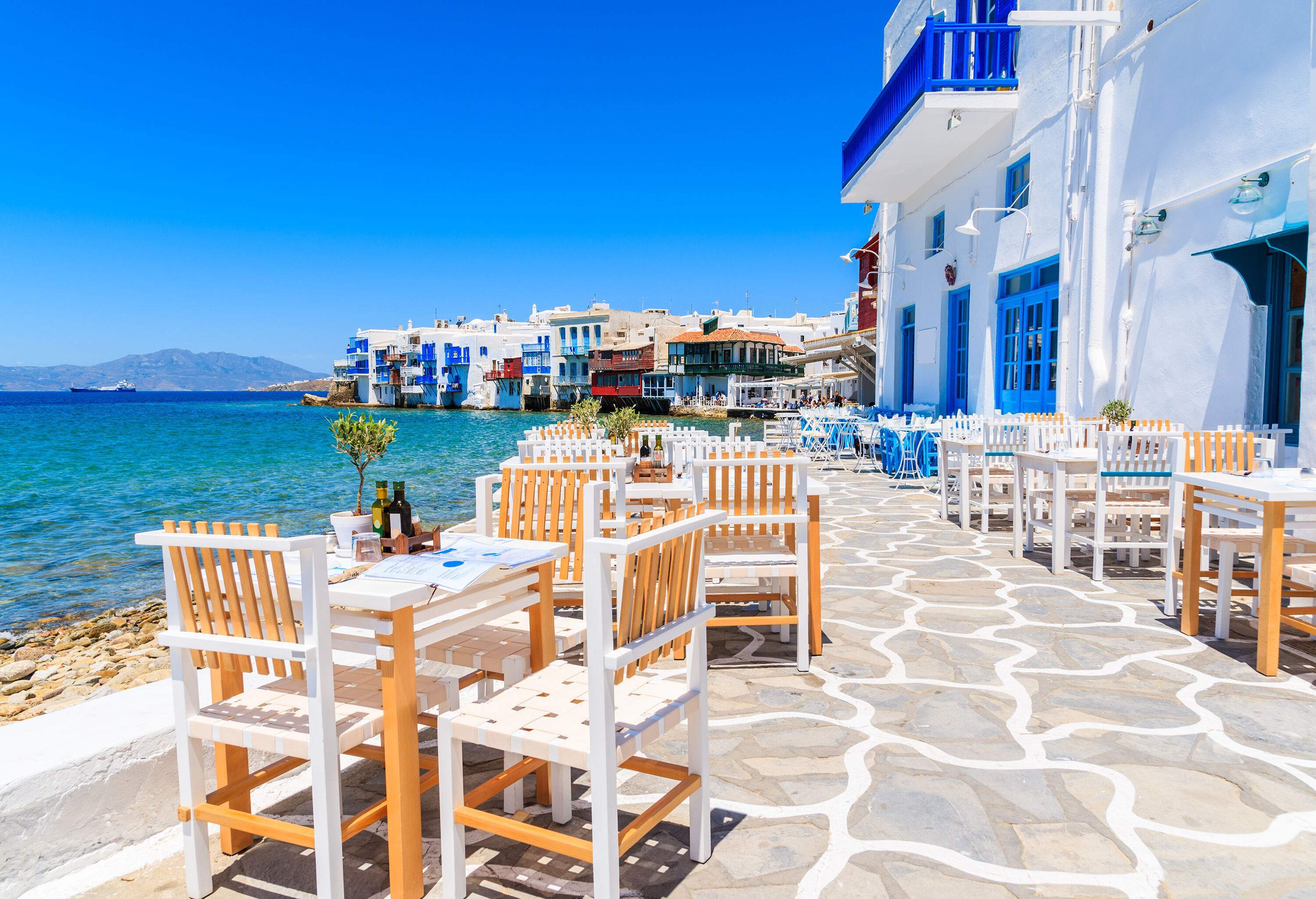
It will come as no surprise that peak season, from mid-June through August, is the busiest tourist season in Greece. During this period, you should expect peak crowds, the warmest temperatures, and prices that match the increased demand.
The shoulder seasons, just before and after peak season, often provide great weather, lower crowds, and more affordable prices on flights and accommodation. Consider the periods of April through early June or September and October for shoulder season. You’ll enjoy outdoor activities without the summer heat and historical attractions with lower crowds.
Winter season from November through March offers mild temperatures with few crowds. Greece isn’t known as a winter destination, although you can enjoy ski resorts in the northern mountains. In this period you’ll experience a different side of Greece that many tourists don’t bother exploring.
Since ancient times, Greek culture has been full of celebrations and festivals. Lucky for you, this hasn’t changed and festivals are a great time to book a trip to gay Greece. Greek cultural, music, and religious festivals are held throughout the year and in June 2024 you can head to Thessaloniki Pride, which marks 2024 Europride.
How do I get to the best places to visit in Greece?
Most travellers from abroad begin their Greek holiday in Athens International Airport, but some of the most popular islands like Santorini and Mykonos have their own airports.
Once you arrive, you’ll discover that getting around is just as exhilarating as spending time in the best places to visit in Greece. You’ll find the Greek public transportation system reliable, organised, and convenient.
Trains and buses connect much of mainland Greece and ferries connect travellers to the sunny Greek islands. Be sure to plan ahead and pre-purchase transportation when possible. This is especially important when travelling between islands where there may be limited ferries or flights per day.
Even far-flung Greek destinations are reachable without a car, but a car hire is often the most efficient way to travel around Greece.
How do I use money in Greece?
In 2001 Greece adopted the Euro, which is convenient if you’re visiting other countries on the Euro. If it’s your first time visiting the country or you haven’t had a Greek holiday in some time, you may be wondering, “do I need cash in Greece?” The short answer is yes, but you can get by with a debit or credit card in most cases.
Card payment was not as common when I first visited Greece, but over the last decade, it’s become the most popular form of payment. Tipping is also customary in Greece and it’s expected to leave a 10-15% tip for excellent service. Having some cash handy for smaller establishments and tips is wise.
How do I prepare for a holiday in Greece?
English is widely spoken among the younger generations and staff you may encounter during your holiday in Greece. Still, learning some basic phrases will enhance your time in Greece and show that you’re embracing the local culture. The Greek people are warm and friendly, so greeting someone with “kalimera” (good morning) or “kalispera” (good afternoon) can go a long way.
Stay up to date on the local weather forecasts before you travel to Greece and pack accordingly. Summer weather in Greece can be incredibly hot, even at night. If you plan to visit churches, monasteries, or other sacred places during your trip to Greece, you’ll need modest clothing for these sites.
Remember to stay well-hydrated, especially in the summer sun or when consuming alcohol. You don’t want to miss a day of Pride fun in Thessaloniki because drinking in the June sun left you dehydrated. Tap water in Greece is safe to drink, but bottled water is also available for those who prefer it.
Conclusion
Follow these tips, bookmark this LGBTQ+ travel guide of the best places to visit in Greece, and you’ll have a Greek trip for the ages.
For more gay-friendly travel advice check out LGBTQ+ travel page.



